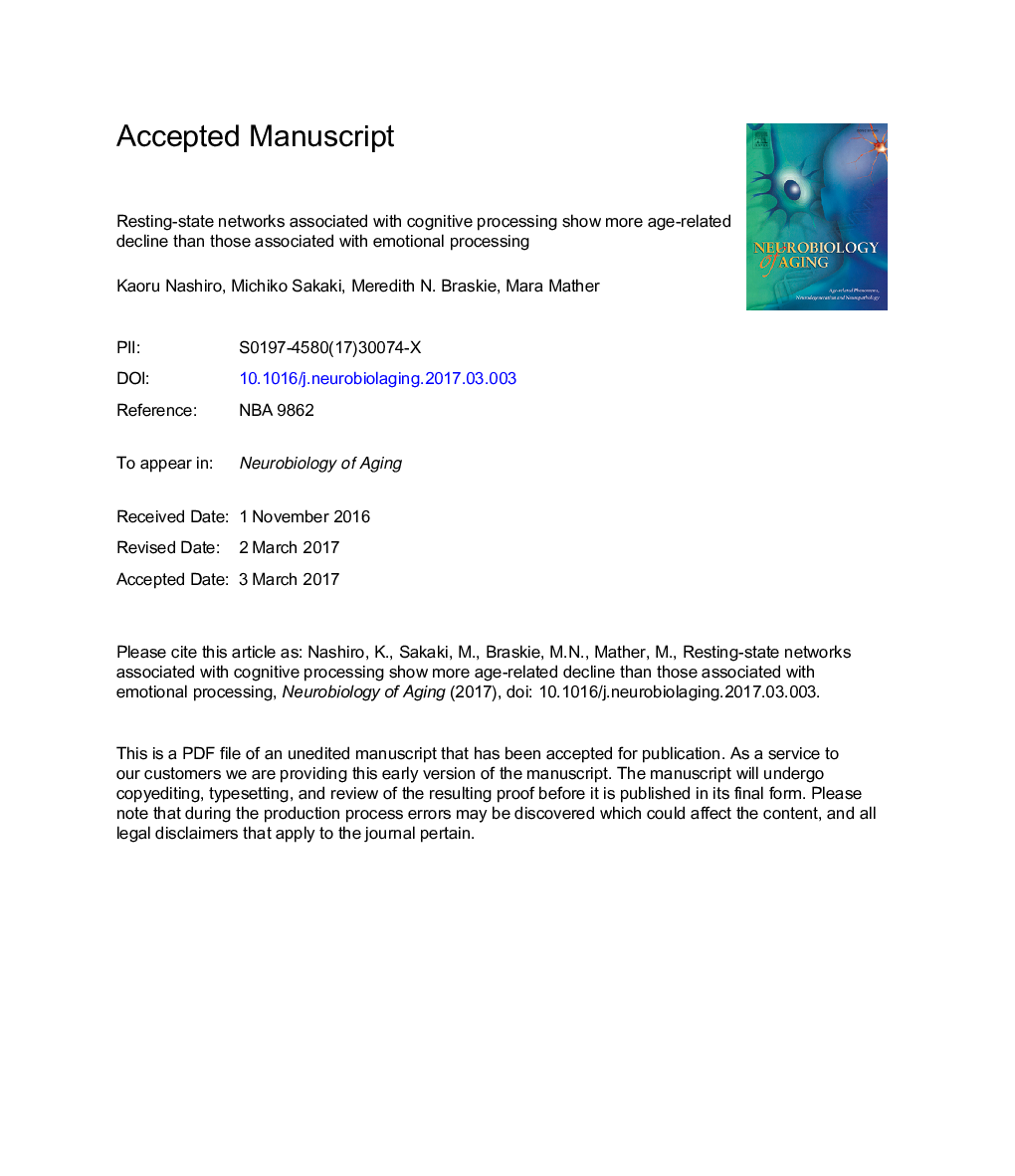| Article ID | Journal | Published Year | Pages | File Type |
|---|---|---|---|---|
| 4932557 | Neurobiology of Aging | 2017 | 33 Pages |
Abstract
Correlations in activity across disparate brain regions during rest reveal functional networks in the brain. Although previous studies largely agree that there is an age-related decline in the “default mode network,” how age affects other resting-state networks, such as emotion-related networks, is still controversial. Here we used a dual-regression approach to investigate age-related alterations in resting-state networks. The results revealed age-related disruptions in functional connectivity in all 5 identified cognitive networks, namely the default mode network, cognitive-auditory, cognitive-speech (or speech-related somatosensory), and right and left frontoparietal networks, whereas such age effects were not observed in the 3 identified emotion networks. In addition, we observed age-related decline in functional connectivity in 3 visual and 3 motor/visuospatial networks. Older adults showed greater functional connectivity in regions outside 4 out of the 5 identified cognitive networks, consistent with the dedifferentiation effect previously observed in task-based functional magnetic resonance imaging studies. Both reduced within-network connectivity and increased out-of-network connectivity were correlated with poor cognitive performance, providing potential biomarkers for cognitive aging.
Related Topics
Life Sciences
Biochemistry, Genetics and Molecular Biology
Ageing
Authors
Kaoru Nashiro, Michiko Sakaki, Meredith N. Braskie, Mara Mather,
